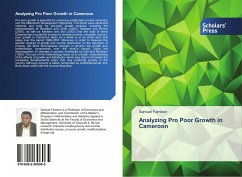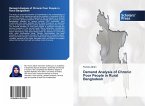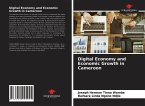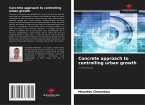Pro-poor growth is essential for achieving sustainable poverty reduction and the Millennium Development Objectives. This Book uses advanced methods and tools for pro-poor growth analysis, including the methodologies of Ravallion and Chen (2003), Kakwani and Pernia (2000), as well as Kakwani and Son (2002) and the data of three Cameroonian household surveys to analyze poverty, inequality, and pro poor growth in Cameroon taken as a whole or in its urban and rural areas over the period 1996-2007. Moreover, in order to measure the specific impacts of growth and income distribution on the reduction of poverty, the Book decomposes changes in poverty into growth and redistribution components over the study's period, using the decomposition of changes in poverty developed by Datt and Ravallion (1992). The use of this methodology leads us to a better understanding of the effects of growth and distribution which may help to formulate the necessary developmental policy that may eradicate poverty in the country. Although poverty is widely recognized as multidimensional, this Book deals solely with the income dimension.
Bitte wählen Sie Ihr Anliegen aus.
Rechnungen
Retourenschein anfordern
Bestellstatus
Storno








